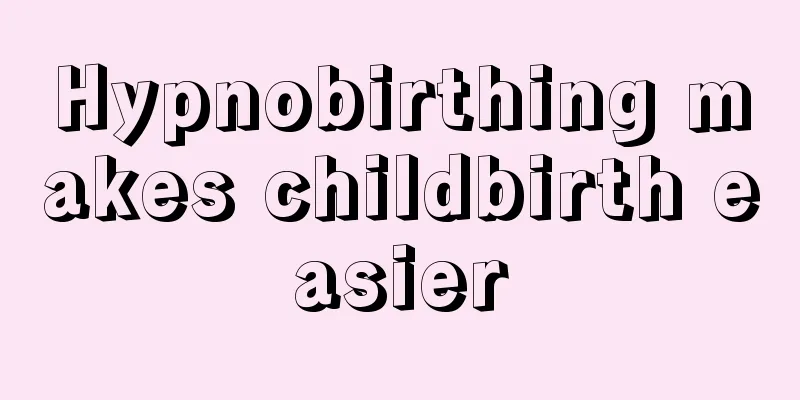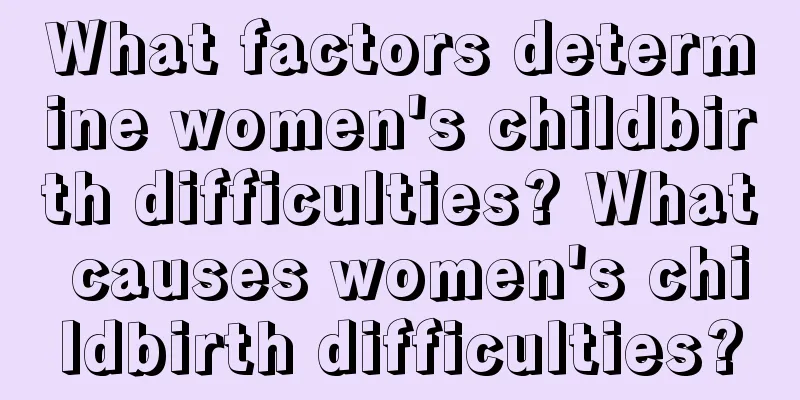What are the symptoms of zinc deficiency in children and what causes it

|
Many children suffer from zinc deficiency because they do not like to eat vegetables or have irregular diets. Mothers should know the manifestations and symptoms of zinc deficiency so that they can detect and supplement zinc in time when their children are deficient. Long-term zinc deficiency can cause physical illness, so mothers who are not clear about this should learn quickly. What are the symptoms of zinc deficiency in children?1. Picky eating and anorexia For babies who are zinc deficient, their taste buds will be greatly hindered, as the taste buds rely on zinc to maintain their sense of taste. 2. Skin infection In daily life, parents should also pay special attention to their children's skin problems. The humid climate in summer is prone to breeding bacteria and viruses. At this time, if the child's skin often has some rashes, parents can check the trace elements for the child in addition to doing corresponding treatment to confirm whether the child is zinc deficient. 3. Pica When a child is zinc deficient, they will experience changes in their sense of taste and develop pica, such as eating soil, slag, dust, etc. Although a large number of studies have found that this problem is not a direct manifestation of zinc deficiency. However, swallowing a large amount of clay and foreign objects will cause the body to absorb iron, zinc, etc. Once a child is found to have pica, in addition to helping him correct this problem in a timely manner, he should also supplement with relevant trace elements. 4. Poor wound healing Children are active by nature and are prone to bumps and bruises. Many parents have found that once a child has a minor bump, it is not easy to recover. If this happens, parents should take their children to a regular hospital for relevant examinations to see if the child is zinc deficient. 5. Abnormal bone development Young children with zinc deficiency have less protein synthesis in their bodies and are significantly shorter than normal children. In severe cases, they may become dwarfs. Therefore, parents must pay great attention to their children's abnormal bone development once they find that they have such abnormalities. What causes it?High zinc demand but insufficient intake Infants, children and adolescents grow and develop rapidly and have a high demand for zinc nutrition, but often have an unreasonable diet, resulting in insufficient zinc intake. Mainly plant-based foods, insufficient animal food intake Zinc is mainly found in animal foods. Most Chinese families mainly eat plant-based foods, and oxalic acid, phytic acid, cellulose and other substances in plant foods seriously interfere with zinc absorption. Frequent consumption of finely processed foods leads to excessive zinc loss and poor absorption. Zinc is absorbed in the small intestine after ingestion. Infants and young children are most susceptible to diarrhea. Diarrhea causes reduced zinc absorption in the intestine, so children with frequent diarrhea are prone to zinc deficiency. Children who have undergone small bowel resection due to intussusception are more likely to be zinc deficient. Cereals in food contain phytates and more cellulose that hinder zinc absorption. Children who are fed with cow's milk are less zinc deficient than those who are fed with breast milk because the zinc in cow's milk is not as easily absorbed as breast milk. Children who are zinc deficient can eat food to supplement it. In daily life, foods containing zinc include oysters, squid, eggs, lean meat, etc. What should I do if my child is zinc deficient?According to the doctor's advice, you can take a combination of food and medicine. If the symptoms of zinc deficiency are not obvious, food supplements are generally sufficient; babies with severe zinc deficiency symptoms should be supplemented with safe and side-effect-free nutritional supplements. Xiangming Zinc Selenium Tablets are suitable for children. Biotransformed protein zinc has a high absorption rate and does not irritate the baby's delicate stomach. At the same time, it tastes good and is easy for babies to accept. Taking it regularly can improve children's appetite and promote growth and development. What foods are good for zinc supplementation?Zinc is a very important element in the growth of babies. If the baby is zinc deficient, the mother should supplement the baby in time. You can get a certain amount of zinc from different foods. The following will introduce it to you from 4 categories. 1. Seafood: oysters, shrimps, kelp, dried shrimps, scallops, etc. 2. Meat: beef, chicken, pig kidney, pig liver, etc. 3. Fruits: peanuts, walnuts, mulberries, apples, etc. 4. Vegetables: potatoes, sweet potatoes, spinach, carrots, soybeans, white fungus, cabbage, etc. |
Recommend
Why does the milk powder have a fishy smell? Is the milk powder spoiled if it separates after mixing?
After the milk powder is prepared, it is best to ...
Do children need to get the flu vaccine after they have had the flu? The reason why they can still get the flu after being vaccinated
Autumn and winter are the peak seasons for influe...
How to judge whether you can have a natural birth based on the three criteria
Generally speaking, a natural birth is better tha...
What is the standard height and weight for a 6-year-old boy? What is the standard height and weight for a 6-year-old child?
6-year-old boys and girls are in childhood, and t...
How old can a child be used to use a fever patch? How old is the fever patch suitable for?
The cooling effect of the fever patch is quite go...
What should I do if my baby likes to play with water? Why does my baby like to play with water?
What should we do if our baby likes to play with ...
How to make tassel pendants? Make your home more artistic with tassel pendants
The fresh literary style is pursued by more and m...
Can I get pregnant with twins by taking ovulation pills? Can I get pregnant with twins by taking ovulation pills?
Can ovulation pills help you get pregnant with tw...
Will eating pork belly make childbirth smoother? How to make childbirth smoother
A smooth delivery helps the mother recover after ...
The advantages and disadvantages of waist stools. Is it better to have a solid waist stool or one with storage?
The waist stool is a product that we are all fami...
Which department should I visit for postpartum depression? Does postpartum depression have sequelae?
Postpartum depression is a common phenomenon in w...
How effective is Manting mite removal soap? Can Manting soap really remove mites?
Usually mites are everywhere in our daily life. M...
What should I do if my baby refuses to brush his teeth and cries when I brush them? How can I help my baby develop the habit of brushing his teeth?
Babies refusing to brush their teeth is a headach...
What degree of water should be used to mix Feihe milk powder? What series of Feihe milk powder are there?
Feihe milk powder is a brand of milk powder that ...
Do I need to change the brand of baby rice cereal? Do I need to mix baby rice cereal with milk powder?
Usually babies under 1 year old eat milk powder a...









